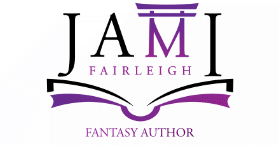
Book Review: Dune by Frank Herbert

![]()
Dune by Frank Herbert
Book Description
Set on the desert planet Arrakis, it is the story of the boy Paul Atreides, who will become the mysterious man known as Muad’Dib. Paul’s noble family is named stewards of Arrakis, whose sands are the only source of a powerful drug called “the spice.” After his family is brought down in a traitorous plot, Paul must go undercover to seek revenge, and to bring to fruition humankind’s most ancient and unattainable dream. A stunning blend of adventure and mysticism, environmentalism and politics, Dune won the first Nebula Award, shared the Hugo Award, and formed the basis of what is undoubtedly the grandest epic in science fiction.
Review
Readers often hail Frank Herbert’s Dune as a science fiction masterpiece. After reading it, I can see why.
Dune tells the story of Paul Atreides, a young noble caught in a deadly power struggle for control of the desert planet Arrakis. This planet is the only source of a precious mineral they refer to as spice.
Herbert packed the novel with political intrigue, environmental challenges, and deep philosophical themes. The planet itself is a living entity, shaping the fate of every character that crosses its vast deserts. Herbert lived here in the rainy and lush Pacific Northwest. Given our environment, it amused me he imagined a desert planet defined by its complete lack of water, extreme climate, and the survival strategies of its inhabitants.
But while I admired the complexity of the novel, I also found elements of Dune problematic.
Let’s start with the oversimplification of the Fremen people, who are clearly modeled after Islamic desert cultures. The way Herbert appropriated Middle Eastern and Islamic traditions to build the Fremen made me uncomfortable. To be fair, Herbert depicts the Fremen as noble and resourceful. But the manner with which he did so distilled their culture into the trope of “mysterious desert people” who are waiting for a white outsider to fulfill their prophecy.
The white savior narrative also didn’t sit well with me. Paul, a privileged noble from off-world, not only becomes the Fremen’s messianic figure but surpasses their own leaders, leading them toward revolution. Yes, Herbert uses Paul’s rise to critique the consequences of messianic power, but the story still leans heavily on the problematic trope where an outsider swoops in to save an indigenous culture.
As a reader, I struggled with this, especially considering how much real-world history echoes the same patterns of colonialism and Western intervention in non-Western societies.
And I will not comment on Herbert’s choice to make the male villain sexually attracted to young men. (Wait, maybe I just did).
But Wait, There’s More!
The patriarchy. Oh, the patriarchy, Frank.
Now, before you get tetchy and tell me Herbert wrote Dune in a different time, let me remind you that the fight for women’s rights and bodily autonomy was in full swing during the 1960s. For context, Betty Friedan published her influential book, The Feminine Mystique, in 1963. The Civil Rights Act passed in 1964, prohibited discrimination on the basis of sex in employment. And 1965 was also the year of Griswold v. Connecticut, which led to the legalization of birth control.
This was the context in which Herbert imagined his fictional world.
Sure, there are strong female characters in Dune who surround Paul. These include Jessica (his mother), Chani (his love interest), and Alia (his little sister). But the society of both the off-world nobles and the Fremen is deeply patriarchal. Some women, including members of the Bene Gesserit like Paul’s mother Jessica, are powerful and have a kind of magic. But while I found the potential of these women intriguing, the women are ultimately only used to manipulate bloodlines and political alliances.
(Side note, while the film adaptations of the book show Alia as a creepy little monster, the character as Herbert wrote her was probably my favorite person in the novel!)
Why Read Stories We Disagree With?
After reading two controversial books in a row, I started thinking about why we can enjoy the experience of a story, even when we disagree with the major themes.
Perhaps we read stories that contradict our values for reasons of empathy or curiosity. Or maybe because stories resonate on multiple levels.
Or because stories provide us with a universal way to connect with others, crossing boundaries of time, culture, and beliefs.
In Dune, I found myself captivated by the strong characters, vivid setting, and imaginative plot. It kept me engaged regardless of the misalignment of themes with my personal views.
This is the magic of storytelling.
For me, the story of Dune transcended my intellectual disagreement. I found the novel to be a gripping examination of power, prophecy, and humanity’s relationship with the environment. Paul’s journey—from a boy to a potential messiah—made me question the morality of leadership and the true cost of survival. His ascension is as much about internal conflict as it is about the grand political machinations around him.
If you haven’t read Dune yet, I encourage you to pick it up. It’s one of those books that will make you think. Its exploration of power and prophecy remains relevant, though the cultural and gender dynamics may give you pause, as they did for me. It’s not a light read, but Dune is definitely worth the effort.
Content Warning
Colonisation, Death, Drug Use, Gore, Grief, Homophobia, Murder, Pregnancy, Religious Bigotry, Torture, Violence, War, Xenophobia
The header photo is a composite image. Base image by Brian Wangenheim on Unsplash

